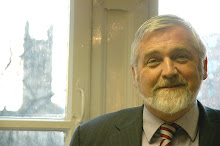"Time for another story – I’ll tell you why afterwards. It’s one that I heard in Russia in 2003. There was an extraordinary happening to which I was invited, a gathering of 400 librarians from all over Russia. On my first evening in Moscow I found myself in the Kremlin, a glittering palace of gold and white, buzzing with people talking about books. It was a great, celebratory evening, the kind of glitz that you would never ever find at a conference for librarians in England – more’s the pity. (Think of that in a month when we’re told hundreds of libraries across Britain might have to close). In fact it was a celebration of librarians – the unsung heroes of the book world – of the importance of the work they do in bringing books to children and children to books. So this was dear to my heart.
Instead of a cabaret, there was a prize giving. And right at the end of a rather long evening, the last prize-winner was announced. As he stood up, a rather diminutive man in an ill-fitting suit, 400 librarians rose to their feet and began huzzah-ing like Russian troops at Borodino. I turned to my minder and asked her what was so special about him. Ah, she said. He is a hero. One day his library caught fire. With no thought for his own safety, he rushed into the building and began to carry out armfuls of books. Inspired by his courage and determination, the townspeople followed suit, so that before the building burned to the ground, they had saved about three quarters of the books in the library – thousands of them., “And the story doesn’t end there,” she said. “He told the townspeople to take the books home and look after them, as many as they could; and then when the library was rebuilt, as he was sure it would be, then they could bring them all back. And that is exactly what happened.” So, with tears in my eyes, I huzzah-ed along with the rest of them.
And I was thinking, it is people like this Russian school librarian who make a real difference to children’s lives, a different kind of hero, unfamous, unglamorous. His love of books and his ability to inspire reminded me of the people who had made a difference to my life, my mother reading to me the stories and poems she loved: Kipling, de la Mare, Masefield, Edward Lear; my choir master at school, Edred Wright, whose enthusiasm gave me a lifelong love of music. We can each of us remember the individuals who made the difference in our own young lives. Yet, something is wrong here and it is this, so often the importance of these individuals in children’s lives is not reflected by their importance in our society."
Michael Morpurgo. Set Our Children Free. 2011 Richard Dimbleby Lecture. http://www.michaelmorpurgo.com/news/read-michaels-dimbleby-lectur/
Those of us who danced in the Kremlin during the IFLA Conference when the coup took place against Gorbachov have another tale to tell - but that's for another day....